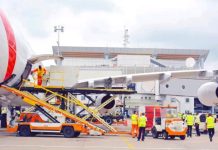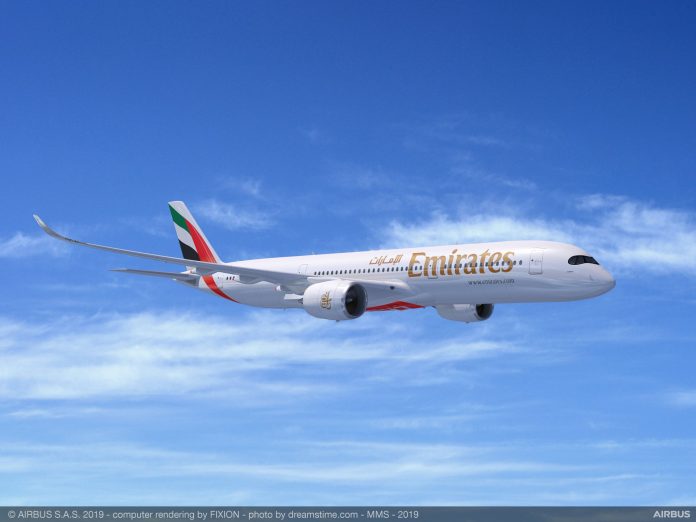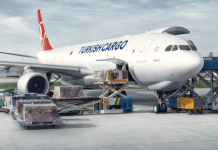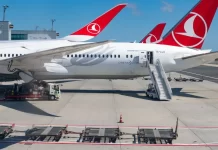Four months after resuming operations in Nigeria, Emirates Airlines has achieved a 75% load factor on its Lagos-Dubai route, signaling a strong comeback in the market. This was disclosed in a Lagos Business School (LBS) breakfast report by Bismarck Rewane, CEO of Financial Derivatives Company Limited, who analyzed trends in global and Nigerian aviation.
Since its return to Nigeria on October 1, 2024, following a two-year suspension over unresolved trapped funds, Emirates has rapidly regained market share, competing against Ethiopian Airlines, Qatar Airways, and Kenya Airways.
The airline’s success is driven by Dubai’s popularity as a destination for business and leisure travelers, a strong global hub with seamless connections to the US, UK, and beyond, and strategic incentives such as free transit visas for Nigerian passengers, which temporarily boosted passenger numbers in late 2024. The lack of direct competition has also played a role, as Nigeria’s Air Peace has yet to resume its Sharjah or Dubai routes.
The LBS report also highlighted a growing demand for international travel, with Middle Eastern airlines projected to achieve a 7.7% margin by 2025, compared to African airlines’ 1%. Furthermore, a forecast by the International Air Transport Association (IATA) predicts that global airline profits will reach $36.6 billion in 2025, driven by lower fuel costs and increased trade.
In Nigeria, foreign airlines are expanding operations, with Delta Airlines adding a daily New York flight alongside its Atlanta service. However, industry experts suggest that regulatory reviews, including Nigeria’s airport concession agreements, could impact the aviation landscape.
With Emirates consolidating its position in Nigeria’s aviation market, the airline’s strong performance on the Lagos-Dubai route is expected to continue, further shaping competition and connectivity in the region.
















